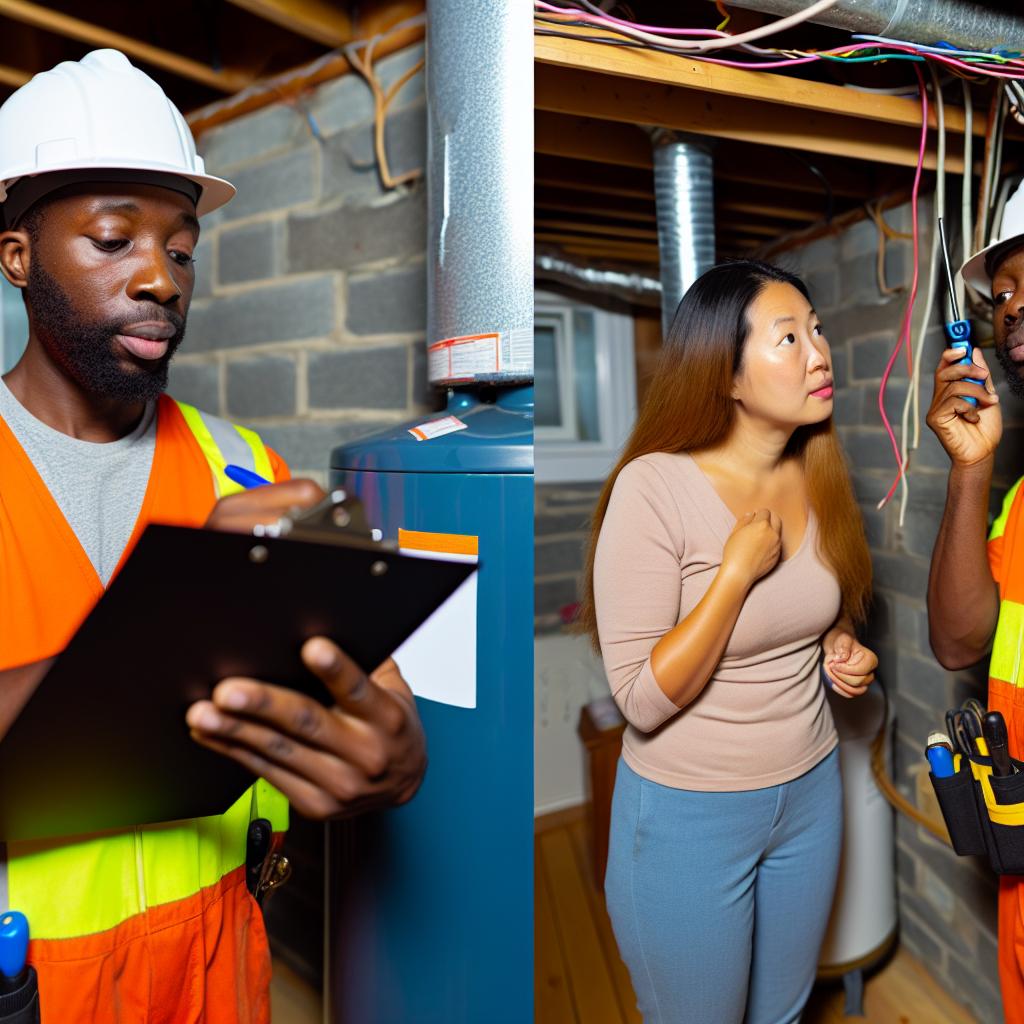
A home inspection is a detailed examination of a property’s physical structure and systems. This thorough process is typically conducted by a certified professional inspector who aims to provide an unbiased assessment of the property’s condition. This evaluation often occurs during a real estate transaction, helping potential buyers identify any significant issues before finalizing a purchase. By shedding light on the true state of a property, home inspections serve as a foundational step in the decision-making process.
Home inspections cover a broad range of elements, each crucial to understanding the property’s overall condition. A standard inspection involves examining several key areas and components:
1. Structural Elements: The inspector assesses crucial structural components, including the home’s foundation, walls, roof, and attic. This evaluation looks for signs of damage, such as cracks or leaks, which could indicate underlying issues. Such findings help gauge the longevity and stability of the structure.
2. Systems Evaluation: Inspectors examine the home’s essential systems, including electrical, plumbing, heating, and air conditioning. These systems are thoroughly assessed to ensure they are functioning correctly and adhering to current codes. Any malfunctions or outdated installations might require repairs or upgrades, affecting the property’s usability and safety.
3. Exterior and Interior Examination: An examination of the home’s exterior and interior encompasses many components, such as siding, gutters, windows, doors, floors, ceilings, and insulation. Inspectors aim to uncover defects that could compromise the property’s aesthetic appeal and functionality. This includes identifying drafts, leaks, or pest infestations, which could lead to more severe problems if left unaddressed.
Home inspections are an integral part of the real estate process. Their significance stems from several critical factors:
Informed Decision-Making: By offering a comprehensive inspection report, home inspections equip prospective buyers with detailed information regarding the property they are considering. This insight highlights necessary repairs and maintenance tasks, empowering buyers to make informed decisions. In some cases, an inspection might reveal deal-breakers that lead buyers to reconsider their purchase, ultimately saving them from unforeseen complications.
Financial Protection: Spotting issues early during an inspection can save homeowners a substantial amount of money by preventing costly repairs in the future. This knowledge can also serve as leverage in negotiations, allowing buyers to adjust the purchase price or request that the seller address specific repairs before the purchase agreement is finalized. Financial protection extends beyond direct savings: by ensuring that all major problems are resolved, buyers are investing in value preservation and minimizing future depreciation risks.
Safety Assurance: Home inspections play a pivotal role in uncovering safety hazards that might otherwise go unnoticed, such as faulty wiring, gas leaks, or structural weaknesses. Addressing these issues proactively ensures that the living environment is safe for new occupants, preventing accidents or health risks. This reassurance is invaluable, as ensuring safety is paramount for anyone considering a home purchase.
The choice of a home inspector is a critical step for any buyer. It is important to select an experienced and certified professional. Buyers should look for inspectors with relevant credentials and positive references. In some regions, there are specific licensing requirements, so it’s wise to verify that the inspector meets these standards. Besides, consulting organizations like the International Association of Certified Home Inspectors can offer valuable insights. Before proceeding, it is advisable to thoroughly research an inspector’s reputation and peruse any available reviews or testimonials to ensure you’re entrusting your assessment to a qualified individual.
In summary, a home inspection is an indispensable step when purchasing a home. By providing a comprehensive evaluation of the property’s condition, it equips buyers with the knowledge needed to make informed decisions. This thorough understanding of the property’s state ensures a safe, sound investment. Additionally, addressing any issues uncovered during an inspection can reinforce the home’s overall integrity and thermal efficiency. For those interested in learning more about home inspections and the broader real estate process, visiting reputable real estate organizations can offer further insights and resources. Engaging with knowledgeable professionals helps demystify the process, making the home buying journey more transparent and less daunting for all parties involved.
Comments are currently closed.